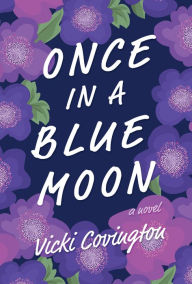 From the deck of his big new house on Brushy Mountain Road, JJ Ferguson can look down at the rooftops of the North Carolina community where he grew up as a foster child. The view is even better at night when lights twinkle in the darkness that hides Pinewood’s shabbiness and depressed economy.
From the deck of his big new house on Brushy Mountain Road, JJ Ferguson can look down at the rooftops of the North Carolina community where he grew up as a foster child. The view is even better at night when lights twinkle in the darkness that hides Pinewood’s shabbiness and depressed economy.
If this scene from Stephanie Powell Watts’ involving first novel, No One Is Coming to Save Us (Ecco, digital galley), recalls F. Scott Fitzgerald’s The Great Gatsby, it’s no surprise. The publisher is billing the book as a contemporary re-imagining of the classic with African-American characters and a Southern setting, but that’s not the whole story. While Gatsby may echo through its pages, No One Is Coming to Save Us — a great title — stands on its own as it explores the nature of family and home, the currents of change, the persistence of dreams.
Watt moves fluidly among the perspectives of her memorable characters. JJ — “Call me Jay” — returns to Pinewood after a 15-year-absence, hoping to rekindle a romance with childhood friend Ava, desperate to be a mother after several miscarriages. She’s married to handsome underachiever Henry, who is keeping a big secret from her. Ava’s mother Sylvia, close to retirement, has her own disappointments and sorrows, including a lost son and her estranged husband Don. The latter, the baby of his family and “always a good time,” now lives with a woman young enough to be his granddaughter but keeps showing up at Sylvia’s. And no wonder. Sylvia is a woman of substance — literally — who nurtures people and her garden. She finds solace in accepting the calls of a young man in prison she’s never met. She realizes that JJ is looking for family and “to be the hero of his own story.” So do they all, that recognition of worth dignifying their busted lives. They beat on. “Haven’t we always done this trick? If you can’t get what you want, want something else.”
 Soon after Landon Cooper moves into the downstairs of an old rental house in south Birmingham, she meets Abi, her lively upstairs neighbor, who tells her she’s going to love living on this street. “Really, we’re like a family. I didn’t mean to pry when I asked you what your story was. It’s just that most of Mr. Kasir’s tenants have a story.”
Soon after Landon Cooper moves into the downstairs of an old rental house in south Birmingham, she meets Abi, her lively upstairs neighbor, who tells her she’s going to love living on this street. “Really, we’re like a family. I didn’t mean to pry when I asked you what your story was. It’s just that most of Mr. Kasir’s tenants have a story.”
What those stories are and how they intertwine is the premise of Vicki Covington’s perceptive novel Once in a Blue Moon (John F. Blair, digital galley). As Barack Obama campaigns for president in 2007 and 2008, Covington’s diverse characters are marked by hope and cope with change. Just moving is a jolt for Landon, a recently divorced psychologist who has her own mental health issues. She meets many of her new neighbors when a drunken stranger passes out in her living room and they rally to her screams. Abi’s the country girl trying to escape her rural roots by taking college courses. Roy’s the athlete with big dreams who deals weed on the side. Jet’s a former prostitute who recently discovered the surprising identity of her birth mother. Their landlord, Abraham Kasir, lives “over the mountain” but keeps a fatherly eye on his tenants as he trains his young grandson Jason to take over the property business.
It’s pure pleasure to read a new novel from Covington, an assured chronicler of the contemporary South at turning points. Night Ride Home, for example, takes place just as World War II begins, while The Last Hotel for Women calls up 1961 Birmingham and the era of Bull Connor. Now with Once in a Blue Moon, Covington gently reminds us of when hope and change brought people together.
 Other good Southern books to put on your reading list include Bren McLain’s One Good Mama Bone: A Novel (University of South Carolina Press, review copy), about a hardscrabble 1950s South Carolina widow, the boy she is raising who is not her own, and a mama cow with a strong personality; Taylor Brown’s The River of Kings (St. Martin’s Press, digital galley), which combines family history and adventure as two brothers journey down Georgia’s Altamaha River to scatter their father’s ashes; and Phillip Lewis’ The Barrowfields (Crown, digital galley), a coming-of-age saga of father and son in a small Appalachian town. All three were recent Okra Picks chosen by Southern indie booksellers.
Other good Southern books to put on your reading list include Bren McLain’s One Good Mama Bone: A Novel (University of South Carolina Press, review copy), about a hardscrabble 1950s South Carolina widow, the boy she is raising who is not her own, and a mama cow with a strong personality; Taylor Brown’s The River of Kings (St. Martin’s Press, digital galley), which combines family history and adventure as two brothers journey down Georgia’s Altamaha River to scatter their father’s ashes; and Phillip Lewis’ The Barrowfields (Crown, digital galley), a coming-of-age saga of father and son in a small Appalachian town. All three were recent Okra Picks chosen by Southern indie booksellers.






